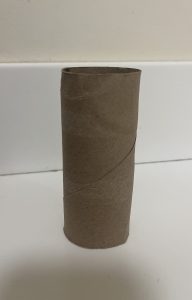One thing I regularly interact with that is typically considered disposable is paper towels. I am a very clumsy person, so paper towels were one of the first things I packed when coming to Hampshire to assist in cleaning up any spills. I would consider paper towels to be disposable and not able to be reused, in contrast to something that is marketed to be one-time use, but maybe is not the reality, such as a plastic water bottle. The design of paper towels would be disposable as well in the sense that you can not use them for an extended period of time before they begin to rip apart. I always end up needing at least 2 paper towels with whatever mess I make. Something that is disposable also indicates a short-term use. This is even marketed by companies such as Bounty, as their slogan is “the quicker picker-upper.” Being able to clean up the mess as soon as possible connects to being able to disconnect yourself from the mess as soon as possible. Upon skimming Bounty’s website, apparently, for every tree they use, they plant two more. It is stated that this is done to grow lush and thriving forests. However, trees are not exactly grown overnight in the same way they are cut down to be used, so I think even what is considered sustainable actions by a company itself are always important to examine further While I am appreciative of paper towels and how they offer cleanup assistance, limiting use of disposable things is definitely something our discussions have reminded me to be consistent about.
Category Archives: Disposability
Disposability (cardboard food container)
A Common product I see often is the single use container for take out food. The products fall apart under any sort of stress and moisture gets trapped making the container fall apart over time. It is clear these are mass produced with little consideration for reusability. These products take a lot in consideration for maximum capacity for products for a single use product along with being light and easy to carry. Trying to reuse these products is harder than buying another as washing them destroys them and are more likely to get stained from food products. By looking at this product from an outside perspective it is clear what sort of culture we lead in our modern society through fast to produce and convenience items with little consideration outside of that.
Disposability
The interaction between humans and the environment has taken us to a whole new world. We create things in the production world to make money for the consumer world. So many things that don’t NEED to be made come out of factories everyday. Companies have started to manipulate consumption tactics to increase the likelihood that things will be bought or sold. The consumer trading business skyrocketed since the online market has become readily available. The cardboard paper that is inside of every roll of toilet paper and paper towels is widely known. Most people just throw those away after they use up the paper on the outside of the tube. I’m not sure if people realize how many we just throw away. There are so many ways to use them, (recycle). In winter if you have a wood stove you can start fires with them. I have a hamster so when I finish a paper towel or toilet paper tube I give it to my hamster. The tubes would be considered trash or waste to most people. I have a brain that thinks that things are not usually trash until they are dirty.

Disposability – prompt
Choose something you regularly interact with that is typically considered to be disposable. (Include a photo if possible.) What makes us able to think of this object ‘disposable?’ Think about the material aspects of the object (how it is constructed), the social/cultural aspects (such as meanings, goals, and symbols the object represents), and the infrastructural connections (where it likely came from and where it will likely go).
Readings this week:
Stouffer, Lloyd. “Plastics Packaging: Today and Tomorrow.” Chicago: The Society of the Plastics Industry Inc., 1963.
Acaroglu, Leyla. “Design for Disposability.” Disruptive Design (blog), January 3, 2018. https://medium.com/disruptive-design/design-for-disposability-962647cbcbb0.
Hawkins, Gay. “Disposability.” Discard Studies, May 21, 2019. https://discardstudies.com/2019/05/21/disposability/.
Wright, Melissa W. 2006. Disposable Women and Other Myths of Global Capitalism. New York, NY: Routledge. (Intro 1-6, Ch 2 23-44)